Description
BUY GUINEA FOWLS FOR SALE
Guinea Fowls for sale at Alpha Agventure Farms are raised with the utmost care and attention to detail. We implement comprehensive programs to maintain the quality of our breeders, including housing, breeder and egg selection, incubation, brooding, feeding, immunization, growing, laying, and disease management. These programs ensure that each Guinea Fowl is healthy, robust, and ready to thrive in your environment, offering both beauty and utility to any farm or household.
Our Guinea Fowls are vaccinated against Newcastle Disease, Infectious Bronchitis, and Infectious Bursal Disease, ensuring their well-being and longevity. We also provide detailed information on the price of Guinea Fowls and their various benefits, making them a valuable addition to your poultry collection. By prioritizing health and quality, we guarantee that our birds are a wise investment for anyone looking to expand their flock with Guinea Fowls near you.
Whether you’re interested in their pest control abilities or their unique vocalizations, Guinea Fowls make a fantastic addition to any farm. Their social nature and ability to forage for insects make them an excellent choice for sustainable farming practices. In addition to their functional benefits, Guinea Fowls can enhance the aesthetic appeal of your farm or garden with their distinctive appearance and vibrant colors. Explore the benefits of adding these versatile birds to your flock, and make a smart choice to buy Guinea Fowls from us, knowing that you are getting the best in quality and care.
WHY BUY GUINEA FOWLS FROM US?
1. We delouse guinea fowls from 3 months old and above.
At Alpha Agventure Farms, we ensure our guinea fowls are free from parasites by delousing them starting from 3 months old. This proactive measure helps to maintain their health and comfort, preventing irritation and disease caused by lice. Our commitment to regular delousing means you receive guinea fowls that are not only healthier but also more content, which supports better growth and productivity. You can be confident that our meticulous delousing process distinguishes us from others, ensuring you receive the highest quality birds.
2. We deworm guinea fowls twice.
To ensure the optimal health of our guinea fowls, we implement a two-phase deworming program. The first deworming targets and eliminates existing internal parasites in the birds’ intestines. This initial treatment addresses parasites currently affecting the fowls and helps prevent immediate health issues.
Since parasites can lay eggs that hatch into new worms, the second deworming is scheduled to eradicate any newly hatched worms that were in their egg stage during the first treatment. This follow-up treatment ensures that both adult parasites and their offspring are effectively removed, providing a comprehensive approach to parasite control.
By adhering to this two-step deworming strategy, we ensure that our guinea fowls are free from internal parasites, supporting their overall health and growth. This thorough approach helps maintain the highest standards of well-being and performance for our birds.
3. We administer bacterial flushing to guinea fowls for 3 days.
At Alpha Agventure Farms, we go the extra mile by providing a 3-day bacterial flushing to our guinea fowls, ensuring their digestive systems are healthy and balanced. This process helps to eliminate harmful bacteria and promotes a stronger immune system, making our fowls more resilient against diseases. By choosing our birds, you benefit from enhanced health and vitality, knowing that our bacterial flushing protocol is unique and unparalleled. This extra care ensures you receive guinea fowls that are not only robust but also primed for peak performance.
4. We revaccinate guinea fowls with ND CLON/H120 and Gumboro.
We prioritize the health and safety of our guinea fowls by revaccinating them with ND CLON/H120 and Gumboro vaccines. This additional vaccination step provides a reinforced layer of protection against Newcastle disease and infectious bursal disease (IBD), both of which can significantly impact poultry health. Our revaccination program is part of our commitment to delivering birds that are not only healthy but also fully protected against common threats. With Alpha Agventure Farms, you can rest assured that our comprehensive vaccination process offers unparalleled security for your investment.
5. We sanitize guinea fowl transport boxes.
At Alpha Agventure Farms, we understand the importance of biosecurity and take pride in sanitizing all guinea fowl transport boxes before delivery. This meticulous process ensures that our birds are transported in a clean and disease-free environment, minimizing the risk of contamination. Our sanitized transport boxes reflect our dedication to maintaining the highest standards of hygiene and safety in poultry transportation. You can trust that our careful attention to cleanliness guarantees a safe arrival for your guinea fowls, setting us apart from the competition.
6. You will get free technical support on how to raise guinea fowls.
We are committed to your success and offer complimentary technical support to assist you in raising healthy and productive guinea fowls. Whether you have questions about feeding, housing, health management, or any other aspect of guinea fowl care, our team of experts is here to provide you with personalized guidance. You can easily reach out to us with your inquiries via email or SMS, and we’ll respond promptly with detailed, practical advice tailored to your specific needs. Our goal is to ensure you have all the knowledge and resources necessary to manage your guinea fowls effectively, helping you achieve optimal results in your poultry farming endeavors.
7. You can buy feeds, feeders, drinkers, cages, natural vitamins, medicines, and other must-haves in poultry farming from us.
We are your comprehensive solution for all poultry farming essentials, offering a wide range of products from feeds to equipment and supplements. Our one-stop shop approach ensures you have easy access to everything you need for successful poultry management, saving you time and effort. We carefully select and provide only the highest quality products, ensuring that your guinea fowls receive the best care possible. By choosing us, you gain the convenience and assurance of a trusted partner dedicated to your success in poultry farming.
HISTORY OF THE GUINEA FOWL
Guinea fowl are native to Africa, with evidence suggesting their domestication occurred around 4,000 years ago. These birds originally roamed the savannas and forests of West and Central Africa. They were integral to local societies, not only as a source of meat and eggs but also for their hardy nature and ability to thrive in challenging climates. Over time, guinea fowl became woven into the fabric of local traditions, particularly in agricultural communities that relied on their versatile role in pest control.
Spread and Domestication
The domestication of guinea fowl spread through the Mediterranean region largely due to trade, exploration, and the rise of civilizations. Ancient Egyptians are known to have kept them as part of their poultry, as evidenced by depictions on tombs and artifacts dating back millennia. From Egypt, these birds were introduced to Greece and Rome, where they gained popularity for both practical and aesthetic reasons. By the Middle Ages, guinea fowl had firmly established themselves in Europe, becoming a common sight on aristocratic estates, especially in France and Italy. Their exotic nature and adaptability ensured their place as a symbol of prestige among the European elite.
Uses and Agricultural Benefits
In Europe, guinea fowl quickly became appreciated not only for their tender and flavorful meat but also for their natural pest control abilities. Unlike chickens, guinea fowl are known to roam freely, consuming insects, ticks, and even small rodents, making them invaluable in agricultural settings. Farmers realized that these birds could help protect crops from pests without the use of chemicals, enhancing yields and reducing the need for pesticides. Their foraging behavior also helps in maintaining soil health by turning over the soil and reducing the presence of harmful larvae and bugs. In this way, guinea fowl contributed significantly to the early agricultural economy by providing a sustainable form of pest control.
Modern Distribution and Conservation
Today, guinea fowl have spread globally and are found on nearly every continent, both in domesticated farms and in the wild. While they continue to be a source of meat and eggs in many regions, they are also kept for their pest-controlling benefits. Their ability to coexist with other poultry and their minimal care requirements make them a valuable addition to many small-scale farms. However, with habitat loss threatening wild populations in some areas of Africa, conservation efforts have been established to protect these birds in their native environments. Programs focused on sustainable farming and wildlife protection work together to maintain healthy populations of guinea fowl in the wild.
Cultural and Symbolic Significance
Guinea fowl hold an important place in the cultural heritage of many societies, symbolizing rural life, traditional farming, and natural harmony. In Africa, they are often featured in folklore and are believed to bring good luck or protection. Their images are frequently seen in local art, carvings, and textiles. Across Europe, their distinct appearance, with spotted plumage and proud posture, has inspired their inclusion in festivals and parades, particularly those celebrating agricultural heritage. These birds serve as a bridge between historical farming practices and modern poultry breeding, reminding us of the vital role they have played in human society for centuries.
Contemporary Popularity
In modern times, guinea fowl have gained popularity for their aesthetic charm and practical advantages. They are increasingly found in urban and suburban settings as ornamental birds, appreciated for their distinctive spotted feathers and striking calls. Many gardeners also utilize them as natural pest controllers, since they effectively manage insect populations without damaging plants. Their hardy nature allows them to adapt to a range of environments, from sprawling rural farms to small backyard spaces. As people become more interested in sustainable and organic farming practices, guinea fowl are once again being recognized for their unique contributions to both agriculture and domestic settings.
FREQUENTLY ASKED QUESTIONS
Can I use your guinea fowls for breeding purposes?
Absolutely. The genetic relationship between the guinea cocks (male) and guinea hens (female) in our flock ensures that there is a minimum of five generations of separation, maintaining genetic diversity and promoting healthy offspring.
Do you offer delivery of guinea fowls throughout the Philippines?
At present, our Guinea Fowls are available exclusively for pickup at our facility located in Block 7, Barangay San Manuel, Tarlac City. If visiting us is not possible, we recommend arranging for an animal transport service to deliver the birds to your location. We can assist you in finding a reliable transporter if needed. To obtain a delivery quote and schedule pickup, please provide your address and order information. Once the birds are with the transporter, we are not responsible for their care and safety.
Can I collect my guinea fowls the day after making a payment?
The minimum processing time for Guinea Fowls is 14 days. This period is necessary to ensure that the birds are properly dewormed, receive bacterial treatment, and are given any necessary vaccinations to ensure their health. If there are orders ahead of yours, the wait time might be extended beyond 14 days.
Will you provide guidance on raising guinea fowls if I make a purchase?
Yes, definitely! We are dedicated to providing support and advice to help you care for your Guinea Fowls successfully. Feel free to contact us via email if you have any questions or need assistance.
What should I know before purchasing guinea fowls for sale?
Before purchasing guinea fowls for sale, it’s essential to understand their behavior and care requirements. Guinea fowls are excellent for pest control and need to be kept in flocks to thrive. They are hardy but require protection from predators and a secure housing environment. Make sure you have adequate space and resources to accommodate their needs, including proper feeding, watering, and shelter.
How do guinea fowls benefit my farm or garden?
Guinea fowls are beneficial for farms and gardens as they naturally control pests like ticks, beetles, and grasshoppers. They forage actively, which helps reduce pest populations and can also improve soil health. Their presence can decrease the need for chemical pest control, making them a valuable addition to sustainable farming practices.
Where can I buy guinea fowls, and how many should I start with?
If you want to buy guinea fowls, you can find them by searching for “guinea fowls for sale” or “where to buy guinea fowls” on Google. It is advisable to start with 8 guinea hens and 2 guinea cocks, as they are social animals that do well in groups. This helps ensure they are comfortable and can exhibit their natural behaviors, like foraging and socializing.
What type of housing do guinea fowls need?
Guinea fowls need secure, well-ventilated housing to protect them from predators and weather conditions. A coop or shelter should have adequate space for them to move comfortably and should be equipped with proper bedding to keep them warm and dry. During the day, they benefit from access to a fenced area where they can forage and explore safely.
How much is the average price of guinea fowls?
The price of guinea fowls varies depending on age, breed, and location. Please refer to the price of our guinea fowl package on this page.
What do guinea fowls eat, and how should I feed them?
Guinea fowls are omnivorous and eat a diet of grains, seeds, insects, and greens. Providing a balanced poultry feed along with access to fresh greens and water is essential. They also enjoy foraging, which contributes to their diet and helps keep them healthy. Ensure they have a consistent food supply and fresh water at all times.
Are there guinea fowls for sale that can adapt to colder climates?
Yes, there are guinea fowls for sale that can adapt to colder climates, though they generally prefer warmer environments. To help them acclimate, ensure their housing is well-insulated and draft-free. Providing extra bedding and a heat source during extreme cold can also assist in keeping them comfortable and healthy.
How can I find guinea fowls near you for my backyard?
To find guinea fowls near you, check local poultry farms, breeders, and agricultural fairs. Online platforms and local farming communities can also be useful for locating nearby sellers. Networking with local poultry enthusiasts or joining agricultural groups can provide recommendations and help you find guinea fowls suited to your needs.
Do guinea fowls get along with other poultry?
Guinea fowls can coexist with other poultry species like chickens and ducks, but they may require some adjustment. Proper introductions and adequate space are crucial to minimize aggression and territorial disputes. Monitor their interactions and ensure multiple feeding stations to reduce competition and stress within the flock.
How do I prevent guinea fowls from roaming too far?
To prevent guinea fowls from roaming too far, ensure their environment is secure and provides enough space for their needs. Establish a regular feeding routine to encourage them to return to their coop. Consider fencing or using a controlled area for their free-ranging activities, and regularly monitor their movements to ensure they stay within safe boundaries.
What are the best practices for raising guinea fowls?
When you buy guinea fowls, follow best practices for raising them by ensuring they have a secure coop, a balanced diet, and access to fresh water. Maintain a clean environment and monitor their health regularly. Socialize them from a young age to reduce skittishness and integrate them smoothly into your flock. Providing a safe and enriching environment will support their well-being.
How do I handle guinea fowls safely?
Handle guinea fowls gently and calmly to avoid causing stress. Approach them slowly and use both hands to support their body when picking them up. Avoid sudden movements and loud noises that could startle them. Regular, gentle handling will help them become accustomed to human interaction, making them easier to manage.
What are common health issues in guinea fowls, and how can I prevent them?
Common health issues in guinea fowls include respiratory infections, parasites, and nutritional deficiencies. Prevent these issues by maintaining a clean and well-ventilated coop, providing a balanced diet, and ensuring access to clean water. Regular health checks and prompt veterinary care for any signs of illness are also important for maintaining their health.
How do guinea fowls contribute to pest control?
Guinea fowls contribute to pest control by consuming a variety of insects, including ticks, beetles, and grasshoppers. Their foraging behavior helps reduce pest populations in your garden or farm. By naturally controlling pests, they can decrease the need for chemical pesticides, promoting a healthier and more sustainable environment.
How does the price of guinea fowls compare to other poultry?
The price of guinea fowls is generally higher than that of common poultry breeds like broiler or Philippine native chickens, due to their unique characteristics and benefits. Keets are usually less expensive, while adults cost more. Compared to specialty breeds, guinea fowls offer a reasonable price for their pest control benefits and distinctive features.
Can guinea fowls be kept in urban settings?
Guinea fowls can be kept in urban settings if local regulations allow it. Ensure you have a secure and spacious area for them to roam, and be aware of their vocal nature, which may be loud. Check with your municipality for any restrictions on poultry keeping and provide a comfortable environment for them.
How long do guinea fowls live, and how do I care for them as they age?
Guinea fowls typically live 10 to 15 years with proper care. As they age, they may require additional attention, such as a nutrient-rich diet and extra warmth during cold weather. Regular health checks and a comfortable living environment will help extend their lifespan and ensure they remain healthy and active.
How do guinea fowls adapt to changes in their environment?
Guinea fowls can adapt to changes in their environment with gradual adjustments. Introduce changes slowly, such as new housing or flock members, to minimize stress. Ensure they have access to familiar food and shelter during transitions. Providing a stable environment and monitoring their behavior can help them adapt more easily.
Are there any specific health supplements recommended for guinea fowls?
Health supplements for guinea fowls may include vitamins, minerals, and probiotics to support their overall health. While a balanced poultry feed typically covers their basic nutritional needs, additional supplements may be beneficial during periods of stress or illness. Consult with a veterinarian or poultry nutritionist to determine appropriate supplements for your guinea fowls.
Where can I find guinea fowls near me for a small farm?
To find guinea fowls near you, you can search for “guinea fowls near me,” “guinea fowls for sale,” or “where to buy guinea fowls” on Google. Don’t be surprised if you see Alpha Agventure Farms at the top of the search results.


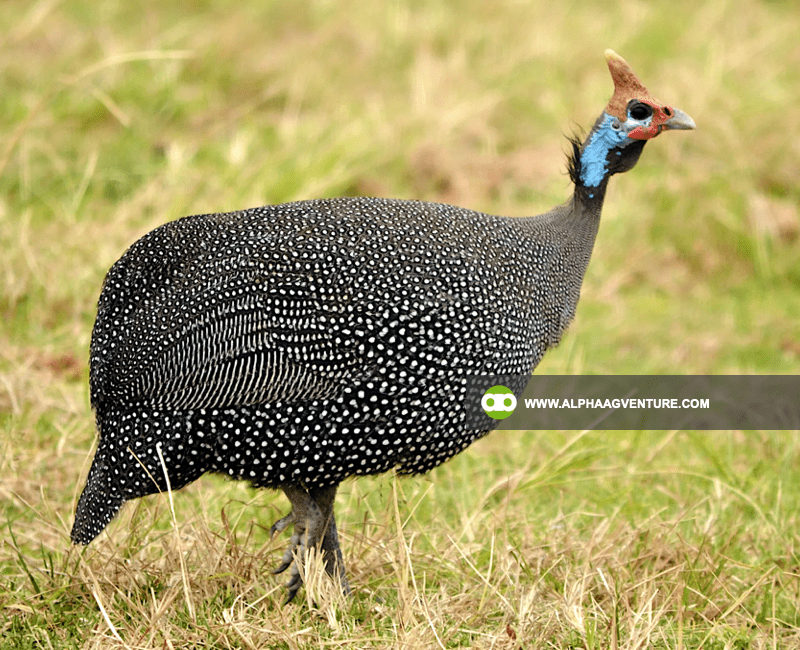
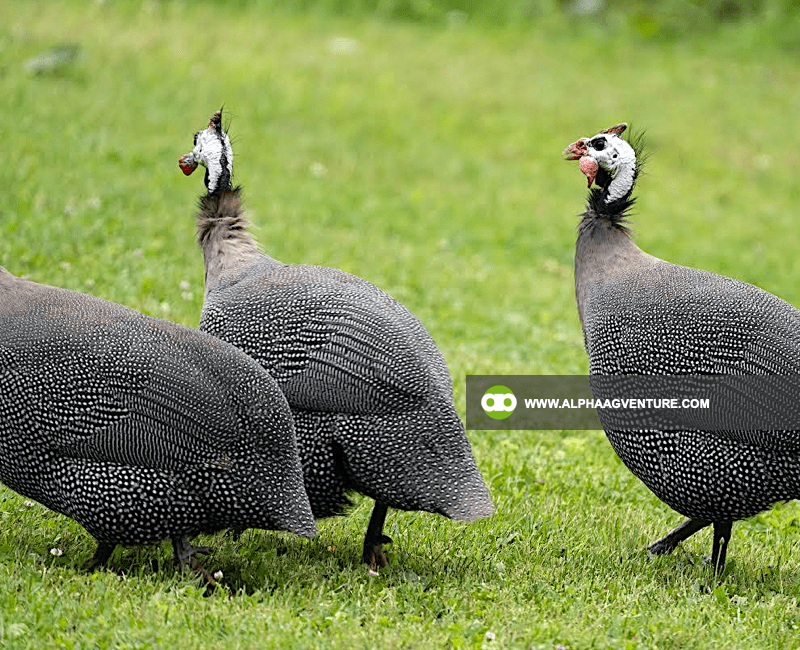
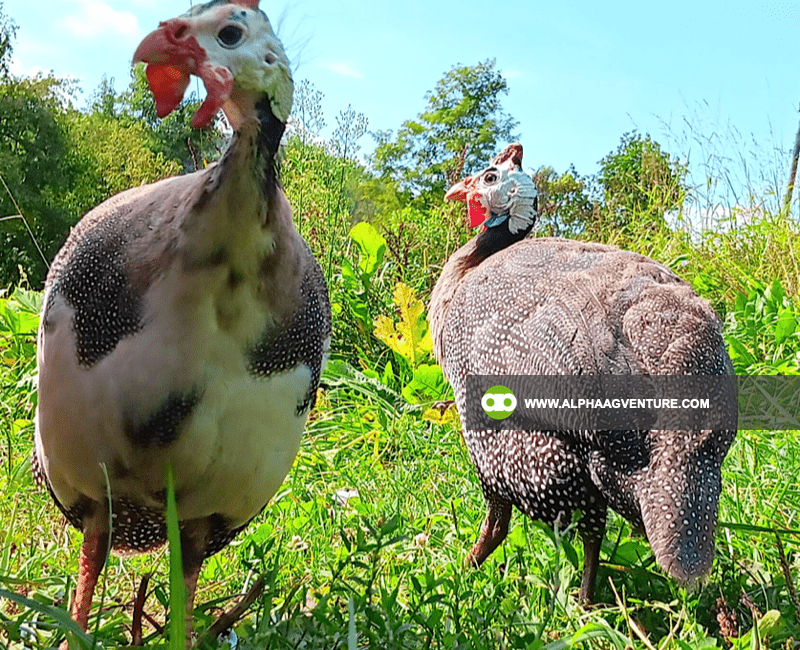
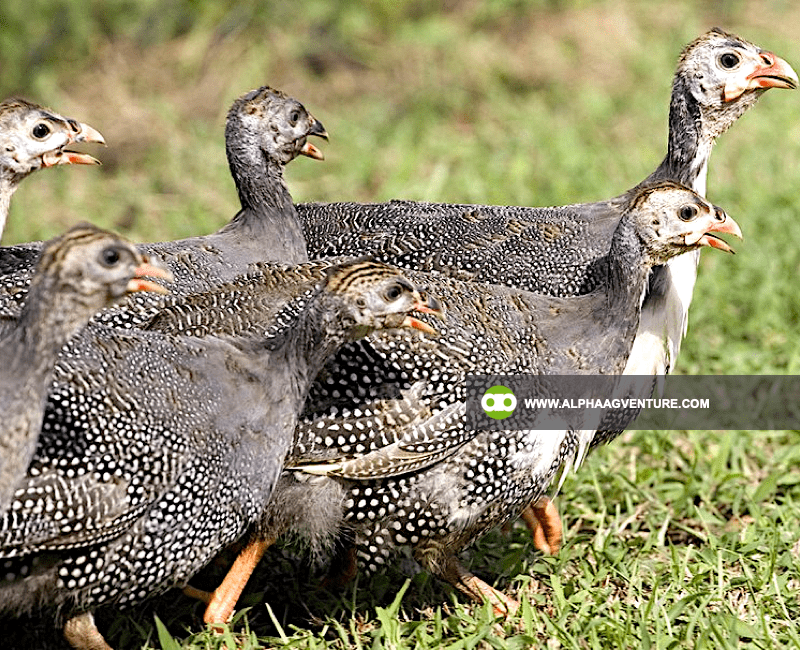
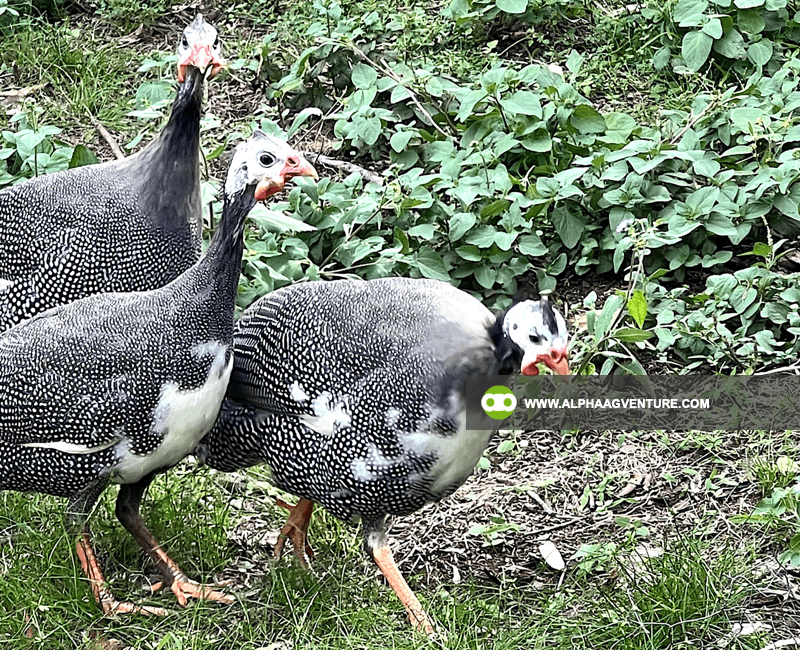
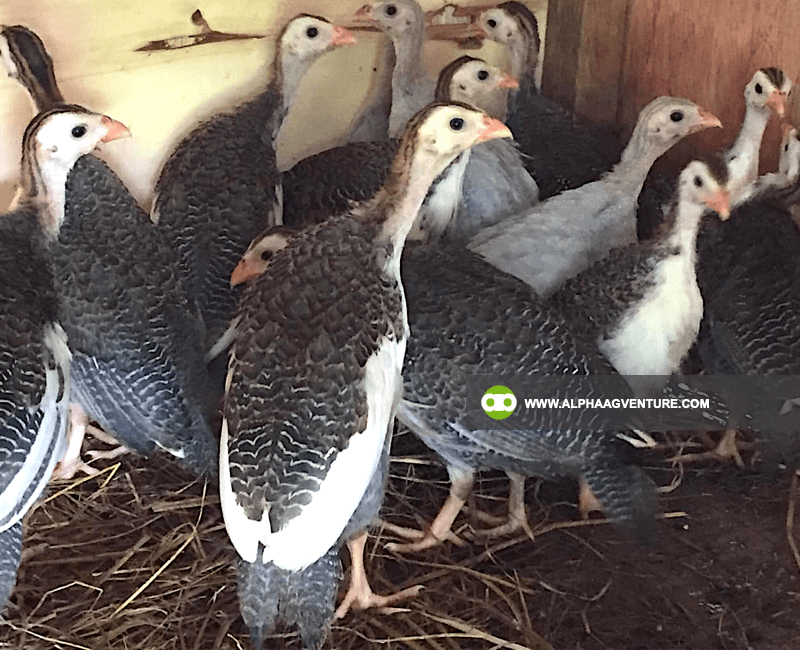
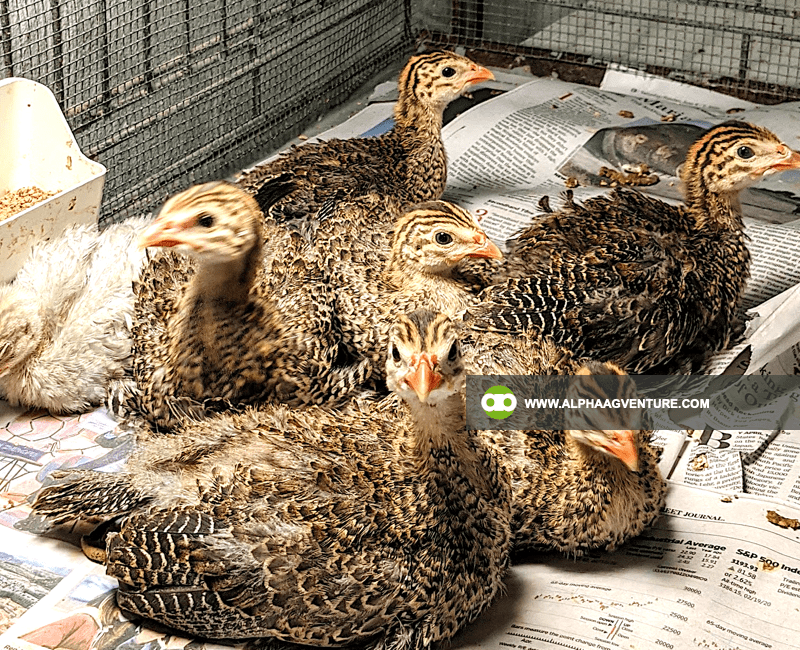
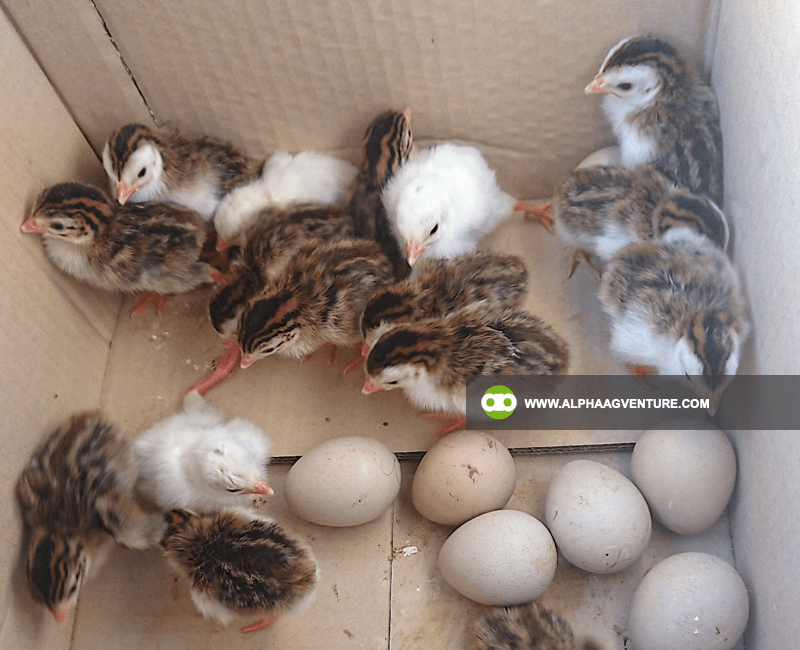


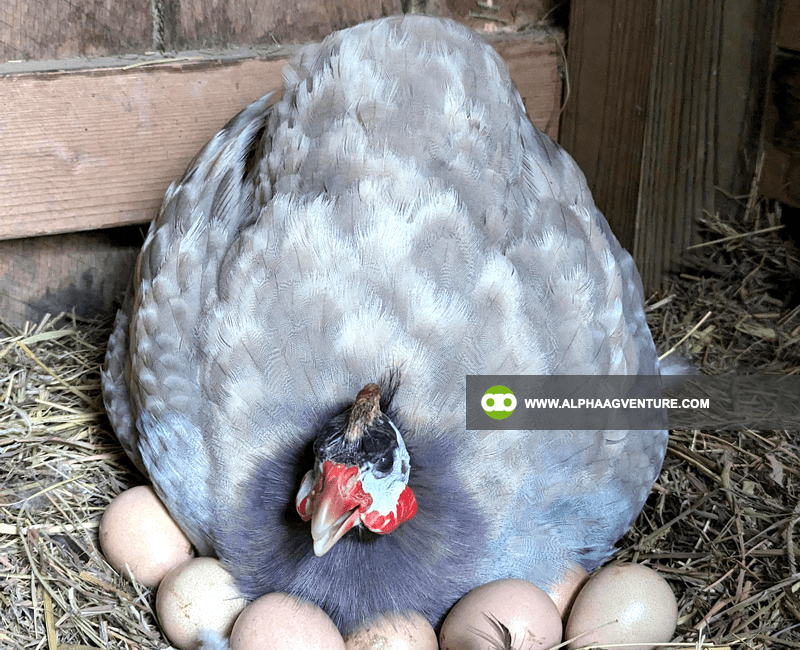
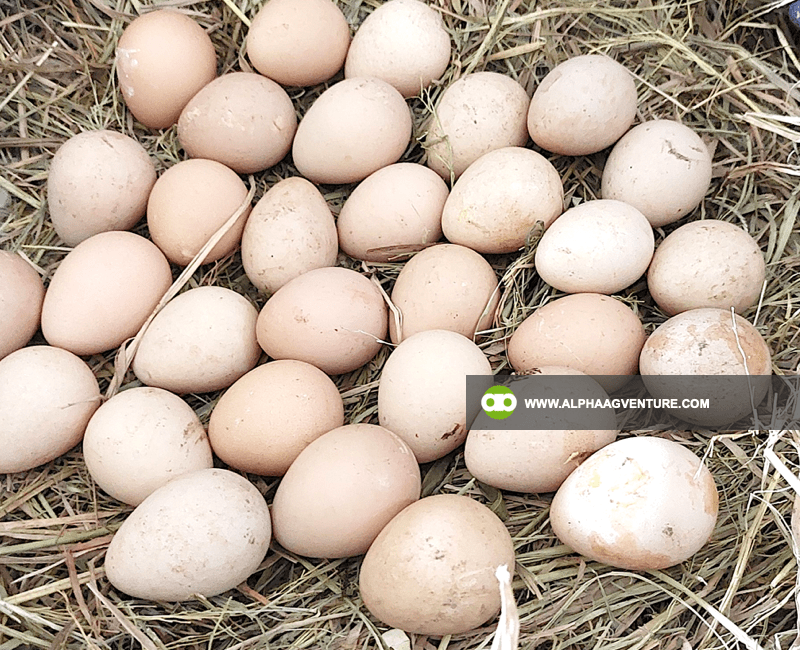
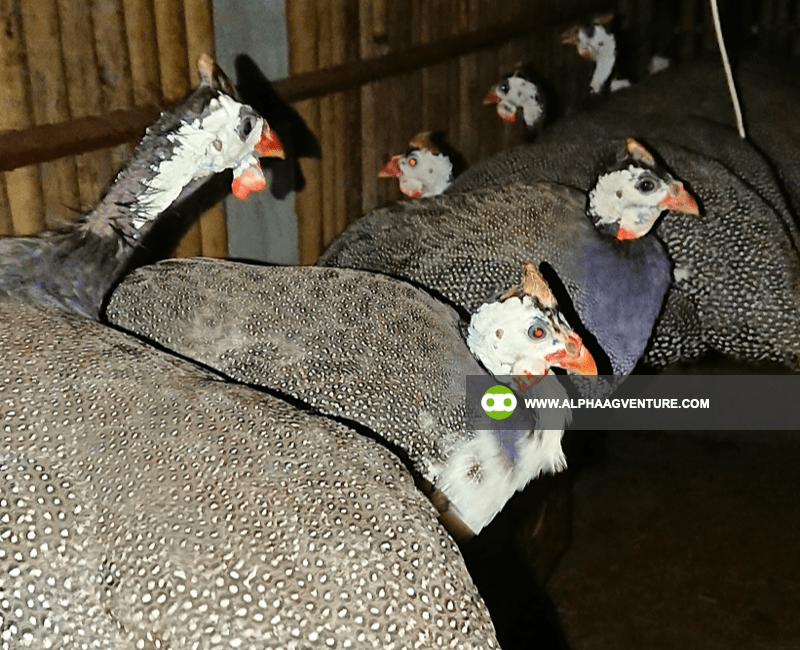
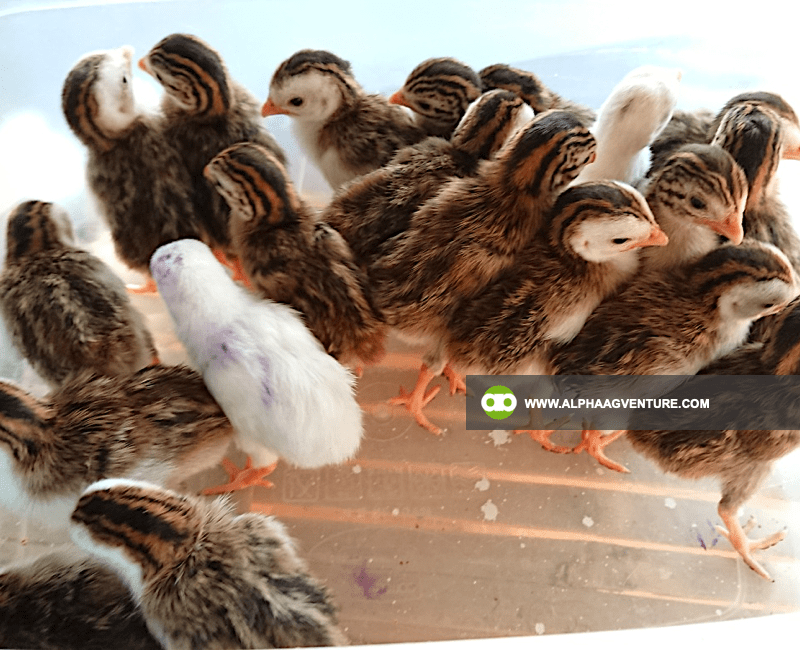
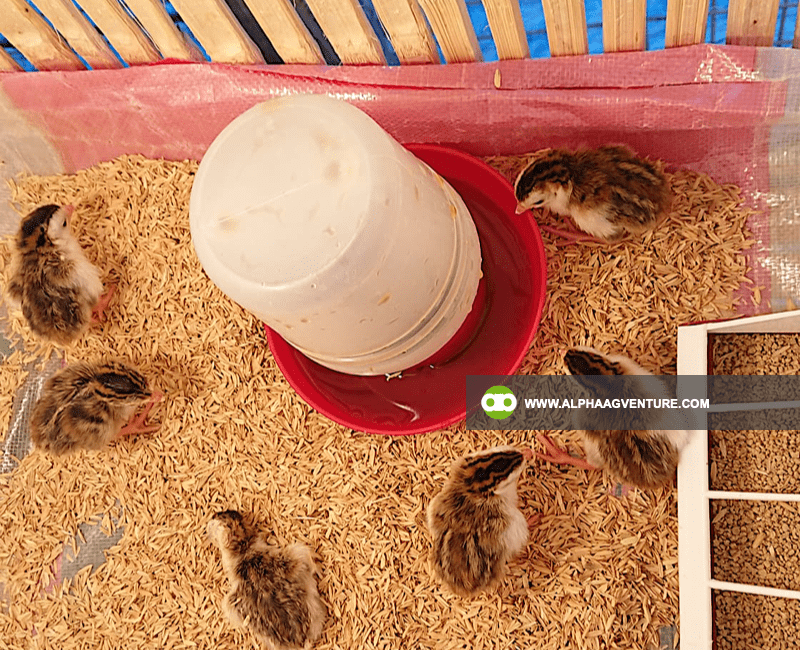
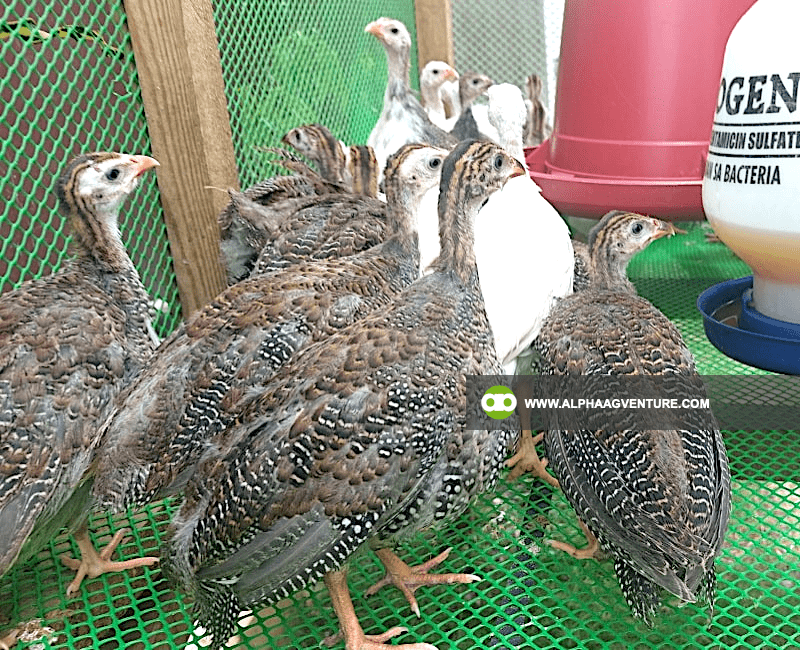
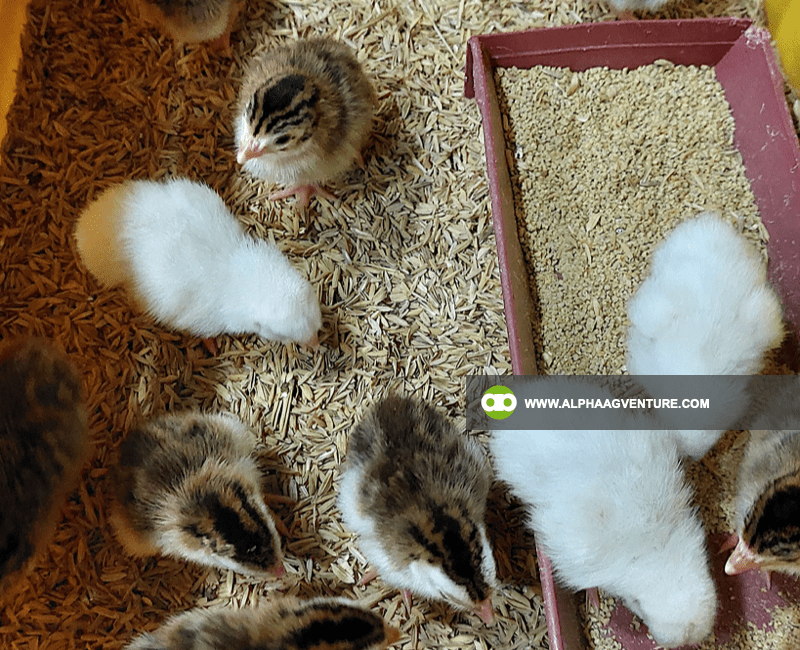
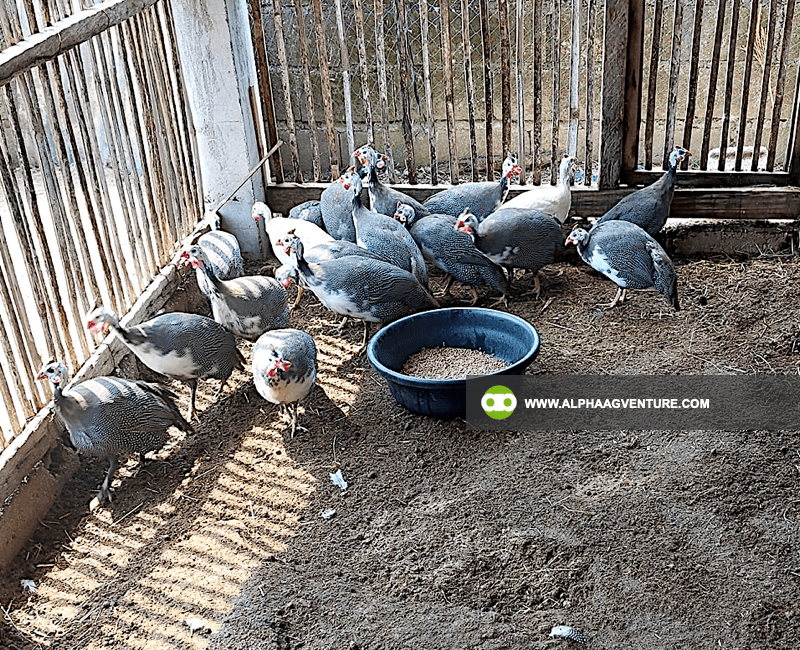
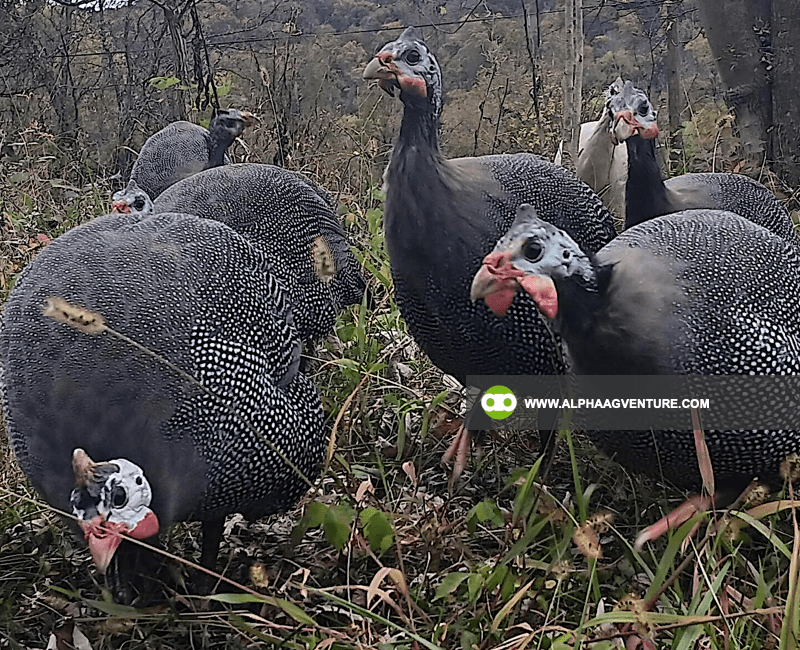

Reviews
There are no reviews yet.